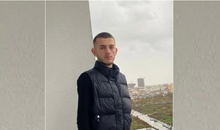
 Flash News
Flash News
Suspected of being murdered, photo emerges of 23-year-old found dead in Shkopet lake
Theth action, resident in tears: I built on my land with my life's expenses, the state should not destroy it
Directors targeted! After Fier and Durrës, Rama arrives in Elbasan
Name/Identification of the 23-year-old found dead near Shkopet Lake
IKM action in Theth, residents come out in protest
Analysis of REL/ Who is preventing lasting peace between Kosovo and Serbia?
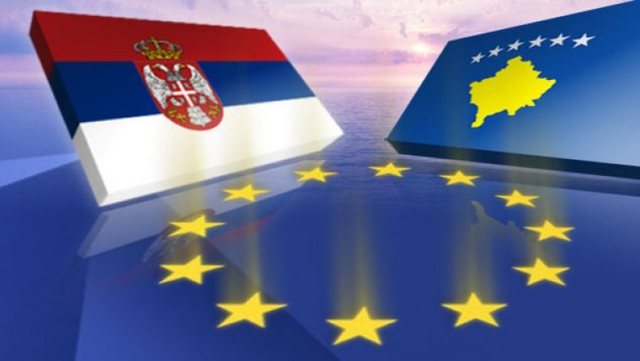
It was April 2013 when the European Union announced that Kosovo and Serbia had reached a "historic agreement" for the normalization of relations.
The agreement - the first of its kind between them since the end of the war in 1999 - was signed by the then prime ministers of the two countries, Hashim Thaçi and Ivica Dacık.
"This is a step away from the past for both of them and a step closer to Europe," said then-EU foreign policy chief Catherine Ashton, who mediated the talks between them.
From that time, Serbia only opened a few chapters of negotiations for admission to the EU, while Kosovo only applied for membership in this bloc.
Many points of the agreement were not implemented and tensions continued. In some cases, they culminated in protests and barricades in the north of Kosovo, where the majority population is Serbian and, influenced by Serbia, opposes the authority of Kosovo.
Ten years after the first agreement, in 2023, the two countries agreed on another one - also for the normalization of relations. Even then it was described as an "important achievement" by the European Union.
Referring to the prime minister of Kosovo, Albin Kurti, and the president of Serbia, Aleksandar Vučić, the head of the EU's foreign policy, Josep Borrell, said that they have agreed to implement all the articles of the agreement and the relevant obligations.
More than a year later, almost all of these articles remain only on paper. Tensions again culminated in violent protests in the north, and even armed incidents.
For Kurti, Vuçiqi is guilty, for Vuçiqi it is Kurti. For Kurt, Serbia is a danger for Kosovo. For Vucic, Kurt's Government is a danger for Kosovo Serbs.
At a summit last week, in honor of the 25th anniversary of the liberation of Kosovo, Kurti said that his government has no problem with the country's Serbs.
"We have a problem with Belgrade, which did not distance itself from either the Milosevic of the past or the Putin of the present," Kurti said, referring to the former Yugoslav president and the current Russian president.
Just three days before the event where Kurti spoke, the Government of Serbia and that of Republika Srpska in Bosnia and Herzegovina approved a joint statement, which, among other things, treats Kosovo as "an inalienable part of Serbia". Serbia continues to have such wording in the Constitution, despite the fact that Kosovo has been an independent state since 2008.
Radio Free Europe addressed both the Government of Kosovo and the Office for Kosovo in the Government of Serbia to ask them what or who the stable peace between the two countries depends on, but none of the institutions responded.
Aidan Hehir, nga Universiteti Westminster në Londër, thotë se problemi qëndron te Serbia. Duke folur për programin Expose të Radios Evropa e Lirë, ai thotë se ky vend, prej vitesh, udhëhiqet nga nacionalistë të linjës së ashpër, që kanë qenë pjesë e regjimit të Sllobodan Millosheviqit në vitet ’90 dhe nuk duan paqe - përkrahin, sipas tij, idenë e krijimit të ‘Serbisë së madhe’.
“Është e pamundur për Kosovën të bëjë marrëveshje me një vend që nuk e pranon të drejtën e saj për të ekzistuar, që vazhdon të ndërhyjë në punët e saj të brendshme dhe që ndez trazira të dhunshme brenda territorit të saj. Pra, faji është te Serbia, jo te Kosova. Kosova është shtet i pavarur. Nuk e kërcënon askënd, nuk do të pushtojë askënd dhe nuk do të marrë tokën e askujt”, thotë Hehir.
Dimitar Bechev, nga Universiteti i Oksfordit, pajtohet se Vuçiq nuk ka gatishmëri për t’i çuar gjërat përpara, por thotë se një pjesë të përgjegjësisë e ndan edhe Kurti.
Vendimet e Qeverisë së tij për të instaluar kryetarët shqiptarë në komunat me shumicë serbe në veri, apo për të ndaluar përdorimin e dinarit serb në Kosovë, nuk i kontribuojnë zgjidhjes së problemit, thotë Bechev.
“Dhe, unë nuk mendoj se ka presion kohor për zgjidhje. Sepse, për aq kohë sa ka tensione, Vuçiq ka rrëfime të mira për t’iu thënë zgjedhësve të tij... se ai po ngrihet për serbët, se ai po i mbron interesat e Serbisë etj. Ngjashëm, edhe Albin Kurti luan me zgjedhësit e tij, që përfshijnë shumë nacionalistë”, thotë Bechev për Exposenë.
Kjo status quo, sipas tij, mund të vazhdojë për kohë të pacaktuar dhe një pjesë të përgjegjësisë ia hedh edhe BE-së për, siç thotë, “ofertat abstrakte” për integrimin e dy vendeve në radhët e veta.
Ai shton se BE-ja duhet të përdorë strategjinë e “karotës dhe shkopit” me to - t’iu ofrojë një gjë, në këmbim të një gjëje.
BE-ja e ka bërë të qartë si për Kosovën, ashtu edhe për Serbinë se integrimi i tyre në familjen evropiane do të varet nga normalizimi i marrëdhënieve me njëra-tjetrën. Ajo, vazhdimisht, u përçon mesazhe palëve për të zbatuar marrëveshjet e arritura.
Por, Bechev pret që vëmendja e BE-së tani, kur është në proces të zgjedhjes së udhëheqësve të saj të rinj, të mos jetë as te Kosova, as te Serbia. Për më tepër, ai thotë se dinamikat mund të ndryshojnë krejtësisht nëse në zgjedhjet presidenciale në SHBA zgjidhet Donald Trump, i cili në mandatin e parë ka anuar nga zgjidhjet më të shpejta dhe më të prera.
“Nëse Trump i fiton zgjedhjet, politika mund të zhvendoset te gjetja e një zgjidhjeje me ndarjen [e Kosovës]. Edhe këto zhvillime pastaj do ta zgjasnin problemin”, thotë Bechev.
Ndarja apo korrigjimi i kufijve është përmendur si opsion në vitin 2018 edhe nga vetë udhëheqësit e atëhershëm të Kosovës dhe Serbisë, Hashim Thaçi dhe Aleksandar Vuçiq, por ideja është heshtur, pas kundërshtimeve që ka hasur në të dyja vendet.
Hehir, from the University of Westminster, says that if there is ever to be lasting peace in the Balkans, it must come from governments that accept that the current borders cannot be changed.
Hehir says that the West should treat Kosovo and Serbia as equal states and if it wants a solution between them, it should focus the pressure on Serbia, which, with the support of Russia, has more leverage in its hands to manipulate.
"Serbia is surrounded by the European Union and NATO, so it is very sensitive to Western sanctions. The West can take a tougher stance towards Serbia and ask it not necessarily to recognize Kosovo, but at least stop interfering in its internal affairs and allow its membership in international organizations. So the West can do this," says Hehir.
Citizens who, according to Bechev, "are always hostage to such pending situations, or become a soccer ball between two governments", are reserved optimists for lasting peace with the other's country.
"I, personally, believe that yes [there can be peace] but it will take a longer time. As a young generation, even though I did not experience the war, I grew up with the spirit of hatred towards Serbia, and I believe that it takes time", says Gentiana Fejza, in her early 20s.
Her fellow citizen from Prishtina, Orhan Avdiu, says that "with this regime in Serbia, peace cannot be achieved".
"It is a political class from the time of Milosevic. His people are in power and there can be no agreement between Kosovo and Serbia", he says for Radio Free Europe.
"Time must pass. Serbia has a very deconstructive approach and it will take a very long time", says Majlinda Ferati.
In Belgrade, a citizen who wanted to be identified only by her name Jellena, says that she does not believe in lasting peace between Kosovo and Serbia.
"The conflict has a long history. There are also many people who are nationalists. Nationalism here is more powerful than anything", according to her.
"It is a difficult question. Many people have been killed and now the families find it difficult to reach out. You have to look at the positive things, but politics poisons everything, on all sides", says Ivo Beserovac.
Stefan Vukashinovic thinks that "it depends on the generations".
"The younger they are, the more present they are on the Internet, they see that peace can be achieved," he says.
It is not known when the leaders of Kosovo and Serbia will be able to see each other again at the negotiating table - at least to try to achieve peace.
Chances are slim during the summer months, until successors to the current mediators are chosen.
The US and Germany reiterate that the two countries must move towards mutual recognition.
In the words of the American ambassador in Pristina, Jeffrey Hovenier - "nothing less fulfills the vision of a complete, free, prosperous and peaceful Europe". REL
Latest news

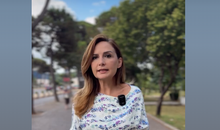
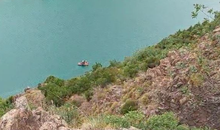
Found dead in Shkopet Lake, 23-year-old has injuries to his throat
2025-07-09 10:41:39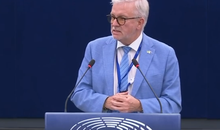
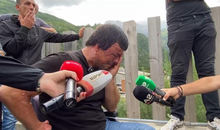
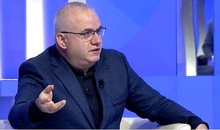
Hoxha: We will have a parliament that will surpass any comedy program!
2025-07-09 10:10:32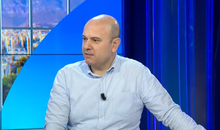
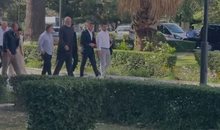
Directors targeted! After Fier and Durrës, Rama arrives in Elbasan
2025-07-09 09:53:57
Name/Identification of the 23-year-old found dead near Shkopet Lake
2025-07-09 09:42:34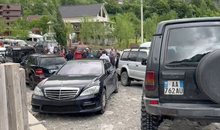
IKM action in Theth, residents come out in protest
2025-07-09 09:34:54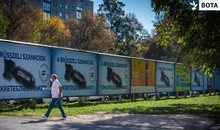
Reasons why the EU has not imposed new sanctions against Russia
2025-07-09 09:18:35
DW: Online scams increase human trafficking
2025-07-09 09:01:29

Reported missing by his father, 23-year-old found dead near Shkopet lake
2025-07-09 08:42:13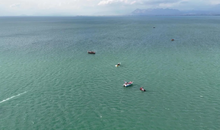
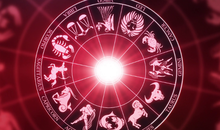
Horoscope, what do the stars have in store for you today?
2025-07-09 08:25:44
Sun and rain, Wednesday with unstable weather
2025-07-09 08:06:58
Posta e mëngjesit/ Me 2 rreshta: Çfarë pati rëndësi dje në Shqipëri
2025-07-09 07:52:02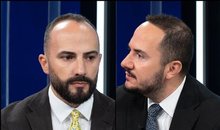

Tabaku: Salianji bore a political cost that no one in Albania has borne
2025-07-08 22:36:15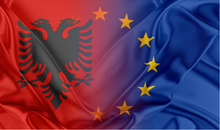
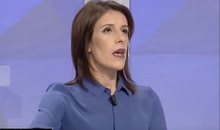

Sekretet për të shijuar verën si një ‘profesionist’
2025-07-08 21:45:06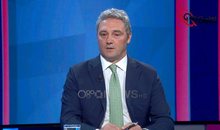

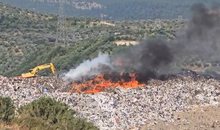
Albania's Waste Crisis: Toxic Smoke and Deep Governance Problems
2025-07-08 21:13:07
Alarming pollution in Fushë-Arrëz, copper factory waste turns the Fan River red
2025-07-08 21:07:14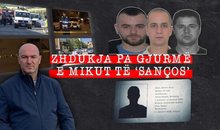

Poll/ How do you assess the Prime Minister's intervention in local government?
2025-07-08 20:40:01
28 arrested in Italy and Spain for drug trafficking, including an Albanian
2025-07-08 20:24:14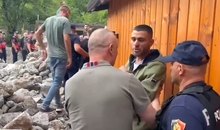
Residents clash with police in Theth: We are on our land
2025-07-08 20:11:41
Death of 27-year-old in Lipjan, Osmani: To be investigated independently!
2025-07-08 20:06:52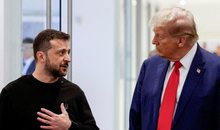
Trump promises US will send more weapons to Ukraine
2025-07-08 19:54:25
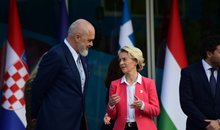
EU targets health, education, police and cadastre as areas of corruption
2025-07-08 19:23:34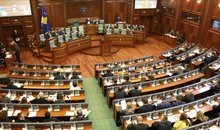
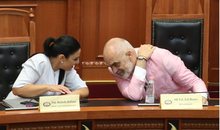
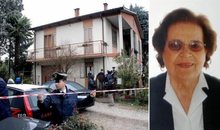
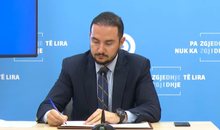
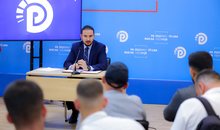
Salianji after his return: I did not oppose for functions, but for vocation
2025-07-08 18:23:15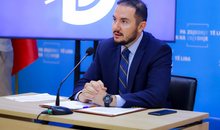
Will he run in the 2029 elections? Here's how Salianji answers
2025-07-08 18:16:09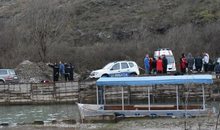
Boat captain drowns after diving into water to save two tourists in Shkodra
2025-07-08 18:05:12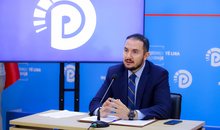
Salianji from the DP headquarters: I brought a drug trafficker to justice
2025-07-08 18:03:26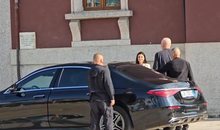
After Fier, Rama "landes" in Durrës, dismissals expected
2025-07-08 17:53:32
Ervin Salianji arrives at the blue headquarters, welcomed by supporters
2025-07-08 17:45:12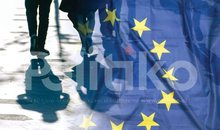
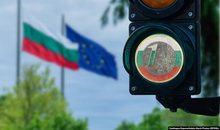
EU approves final steps for Bulgaria's Eurozone membership
2025-07-08 17:43:06
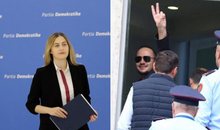
Zhupa after Salianj's release: Inspiration for every opposition member
2025-07-08 17:19:39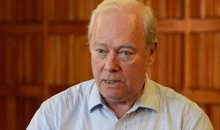
Actor David Killick passes away
2025-07-08 17:09:23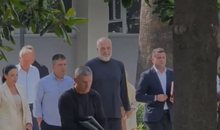


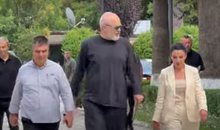
Threatened with dismissals, Rama arrives at the Fier municipality
2025-07-08 16:39:19
Extreme temperatures temporarily close Acropolis in Greece
2025-07-08 16:30:34

A plot of cannabis is discovered in Mazha, Kruja
2025-07-08 16:13:48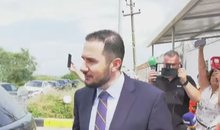
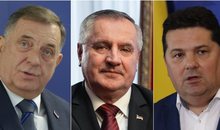
Republika Srpska allocates additional 22 million euros for lobbying in the US
2025-07-08 15:52:04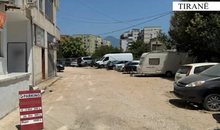

Spices that protect you from mosquitoes!
2025-07-08 15:30:03

Accident on the Vlora-Qeparo axis, one injured
2025-07-08 15:11:52
Berat, 17 years part of UNESCO's world heritage
2025-07-08 15:03:30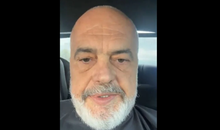
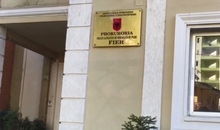

Cost of living increases, inflation rises to 2.4% in June, driven by food
2025-07-08 14:29:54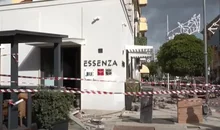
VIDEO/ Restaurant roof collapses in Italy, one victim and ten injured
2025-07-08 14:18:44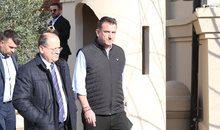
Requested release from cell, Supreme Court leaves Veliaj in prison
2025-07-08 14:07:41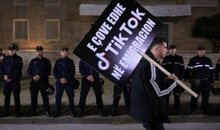
TikTok shutdown/ Austrian media: Rama benefited politically from the app ban
2025-07-08 13:48:25
Acropolis temporarily closed due to heat
2025-07-08 13:31:09
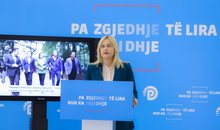
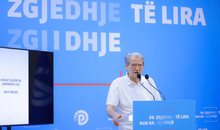
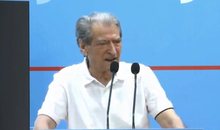
Salianj's release/Berisha: He was politically condemned by Rama and Xhafa!
2025-07-08 13:00:13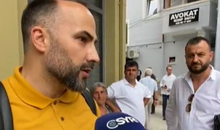

Knife attack on Peshkopia Boulevard
2025-07-08 12:44:10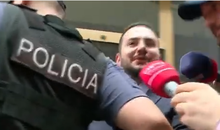
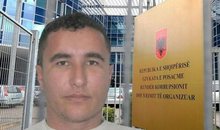
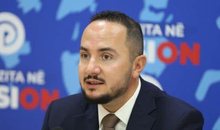
Fier Court decides on the conditional release of Ervin Salianj
2025-07-08 12:15:23
Cost of living increases, inflation rises to 2.4% in June due to food
2025-07-08 12:00:16
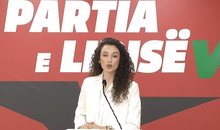
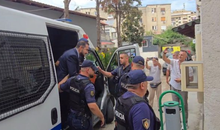
Requesting conditional release, Ervin Salianji arrives at the Fier Court
2025-07-08 11:16:36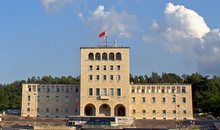
The first phase of university applications begins today
2025-07-08 11:10:52
Fire in Lura, flames endanger the National Park
2025-07-08 10:53:43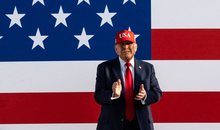
Trump warns of 35% tariffs on Serbia and 30% on Bosnia and Herzegovina
2025-07-08 10:37:32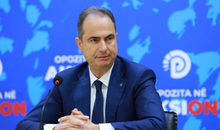
Thethi rooster and the dung cock
2025-07-08 10:24:01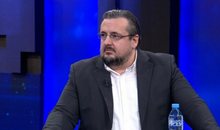

Fire in Dukat endangers Llogara National Park
2025-07-08 10:01:39
International drug search: 36-year-old arrested in Durrës (NAME)
2025-07-08 09:50:48
Thethi, tourists "criticize" modern trend
2025-07-08 09:39:54
Fire on Mount Dukat still active, Llogara National Park at risk
2025-07-08 09:28:12
Veliaj's appeal to be heard today in the High Court
2025-07-08 09:16:02
"Bad sign for democracy"/ Parliament neglects reporting by institutions
2025-07-08 09:04:56
Today's hearing at the Fier Court, Salianji requests conditional release
2025-07-08 08:56:39

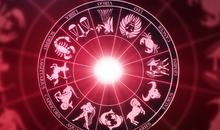
Horoscope, what do the stars have in store for you today?
2025-07-08 08:16:19
